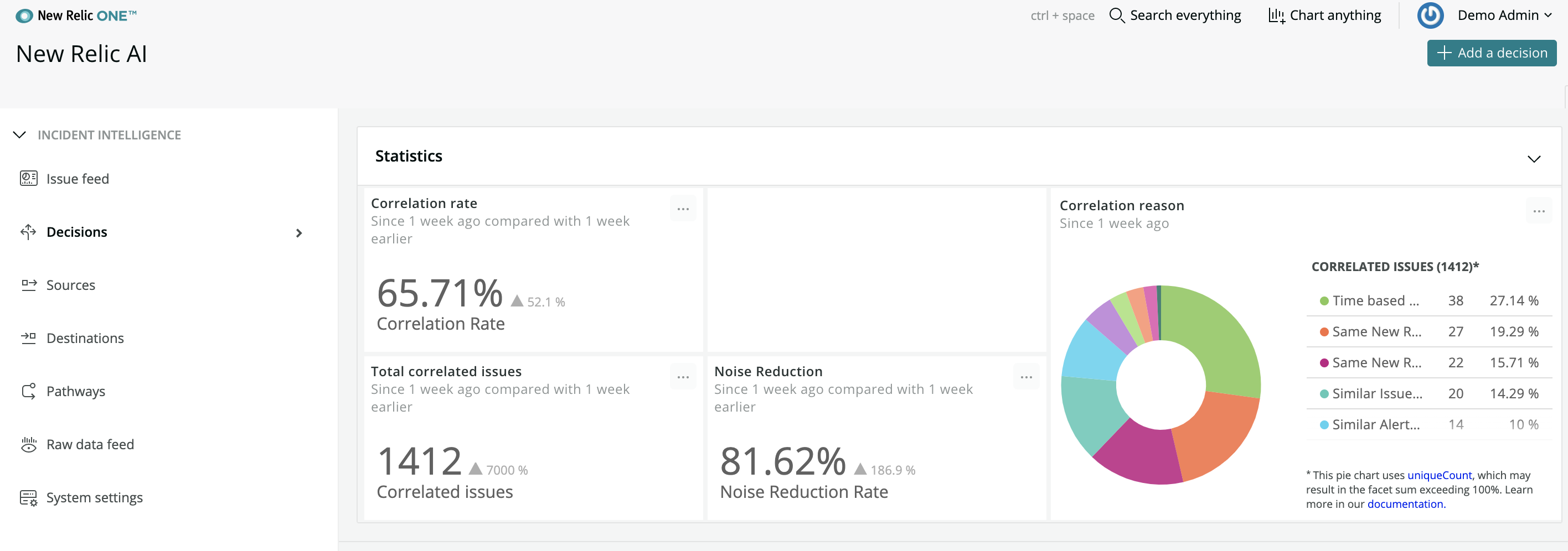New Relic this week announced it has extended the capabilities within its New Relic AI module to include support for additional data sources and provide access to more advanced analytics.
Integrations with Splunk, Grafana, Prometheus and Amazon CloudWatch are now provided along with support for a number of incident management platforms, including ServiceNow, OpsGenie and VictorOps. New Relic AI previously provided support for the incident management platform from PagerDuty.
DevOps teams can also surface more details about anomalies, including attributes that caused spikes, related signals to investigate root cause by looking at what happened around the anomaly and view upstream and downstream dependencies.
 Guy Fighel, general manager and group vice president for New Relic, said these and other capabilities being added to extend the capabilities of a monitoring platform that as a software-as-a-service (SaaS) platform provides a natural focal point applying machine learning algorithms to the massive amounts of data required to inform an AI engine.
Guy Fighel, general manager and group vice president for New Relic, said these and other capabilities being added to extend the capabilities of a monitoring platform that as a software-as-a-service (SaaS) platform provides a natural focal point applying machine learning algorithms to the massive amounts of data required to inform an AI engine.
Other new capabilities being added to the platform include the ability to infuse correlations with decision logic to drive custom decisions and greater transparency into why and how correlations are performed.
New Relic AI has also been enhanced to reduce the number of extraneous alerts that might be generated in addition to providing insights into the rate of total incidents correlated, total correlated issues, rate of noise reduction and the most common reasons why incidents are correlated. New Relic AI also provides access to a configurable set of filters to specify a grace period for each issue priority.
Fighel said the goal is to make it possible to continuously evaluates telemetry data for anomalies and then share those insights via existing collaboration tools. To accomplish that goal, New Relic AI ingests multiple data types, including alerts, logs, metrics and deployment events.
New Relic doesn’t see AI replacing the need for IT teams anytime soon. Rather, Fighel said AI will augment existing IT staff in a way that enables them to determine the root cause of any issue faster. Monitoring tools accessed via the cloud make an ideal platform for infusing AI into a service where data already reside, said Fighel. In contrast, other platforms require IT teams to aggregate massive amounts of data to enable an AI model to be trained.
There’s naturally a high degree of skepticism when it comes to applying AI to IT management, but Fighel said it’s only a matter of time before AI capabilities are taken for granted. In fact, as IT environments continue to become more complex and there is an increased focus on driving down IT costs in the wake of the COVID-19 pandemic, it’s now only a matter of time before AI technologies become more widely adopted.
In the meantime, DevOps teams should expect many of the rote tasks they need to perform today to become increasingly automated. That might make some members of the IT team uncomfortable, but before long most IT professionals won’t really miss aspects of their jobs that today are little more than pure drudgery.





